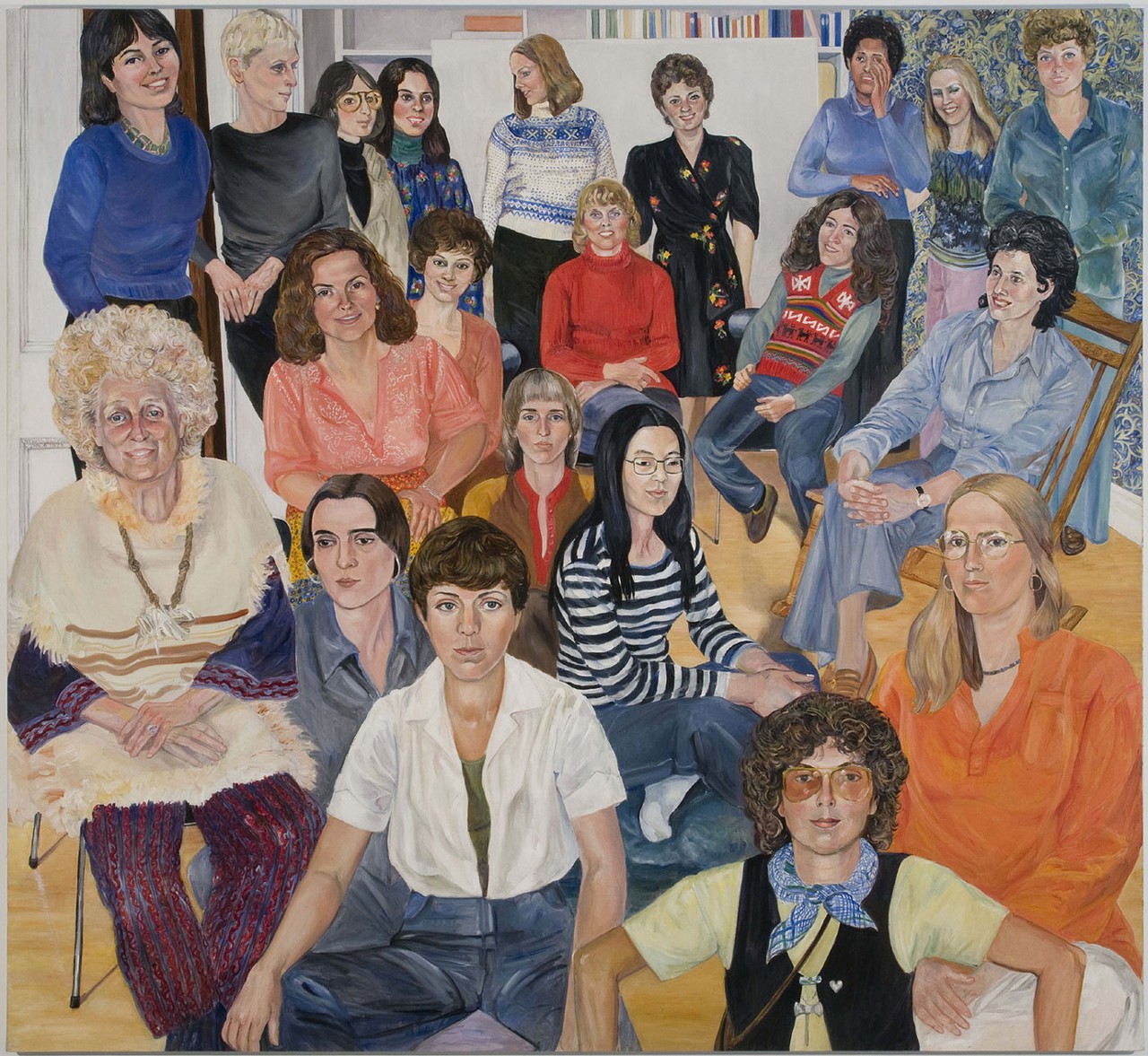Sylvia Sleigh
The Untimely Gaze
23 Sep 2013 - 12 Jan 2014
SYLVIA SLEIGH
The Untimely Gaze
27 September 2013 - 12 January 2014
Curator: Katya García-Antón
Session: Beyond Figura
Sylvia Sleigh (Wales, 1916 - New York, 2010) remained true to figurative painting throughout her lifetime, becoming an important actor, portrayer and supporter of the feminist scene in New York in the 1970s. Her portraiture liberated painting from the rigidity of a male-dominated gaze, while insisting on the relevance of contemporary dialogue with European painterly tradition. In Sleigh's portrayals of the art world around her, critics, collectors and artists, male and female, were rendered clothed, cross-dressed or nude. Hers was an untimely, irritating, deeply personal, feminist perspective which claimed an innovative space for the female gaze, ranged at the centre of a burgeoning discourse around issues of hierarchy, representation and gender that are still highly relevant today.
Indeed, her markedly sensual and sexual approach to oil painting attached great importance to details: at times the entire surface of the painting is densely inhabited. These tools were given a primary role in the construction of a new representational history which echoed sensitively with the momentous changes of her times. The crucial role Sleigh played in the development of feminist and gender-led aesthetic languages from the 1960s onwards was largely ignored until quite recently, when her oeuvre began to attract attention as a result of ground-breaking exhibitions such as WACK! Art and the Feminist Revolution, held at MoCA Los Angeles in 2007.
The Untimely Gaze
27 September 2013 - 12 January 2014
Curator: Katya García-Antón
Session: Beyond Figura
Sylvia Sleigh (Wales, 1916 - New York, 2010) remained true to figurative painting throughout her lifetime, becoming an important actor, portrayer and supporter of the feminist scene in New York in the 1970s. Her portraiture liberated painting from the rigidity of a male-dominated gaze, while insisting on the relevance of contemporary dialogue with European painterly tradition. In Sleigh's portrayals of the art world around her, critics, collectors and artists, male and female, were rendered clothed, cross-dressed or nude. Hers was an untimely, irritating, deeply personal, feminist perspective which claimed an innovative space for the female gaze, ranged at the centre of a burgeoning discourse around issues of hierarchy, representation and gender that are still highly relevant today.
Indeed, her markedly sensual and sexual approach to oil painting attached great importance to details: at times the entire surface of the painting is densely inhabited. These tools were given a primary role in the construction of a new representational history which echoed sensitively with the momentous changes of her times. The crucial role Sleigh played in the development of feminist and gender-led aesthetic languages from the 1960s onwards was largely ignored until quite recently, when her oeuvre began to attract attention as a result of ground-breaking exhibitions such as WACK! Art and the Feminist Revolution, held at MoCA Los Angeles in 2007.

